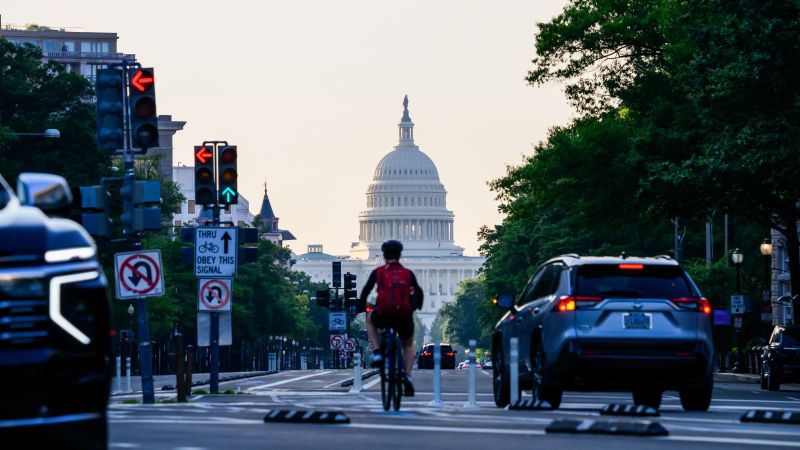On Tuesday, former President Donald Trump reignited discussions about a federal takeover of Washington, DC, during a press conference that addressed growing concerns over crime in the city. This response was sparked by a distressing incident involving Edward Coristine, a former employee of the Department of Government Efficiency (DOGE), who faced an assault in a carjacking attempt. Trump’s statement reflected rising frustration with crime rates in the capital and a call for immediate governmental intervention.
Trump relayed the story of Coristine, a young man who was brutally attacked by a group of assailants—described by Trump as “thugs”—as he attempted to fend off the carjacking. The incident escalated when a group of roughly 10 juveniles surrounded Coristine’s vehicle, leading to their eventual flight when police arrived on the scene. Following the incident, two of the assailants, both aged 15, were arrested and charged with unarmed carjacking, a legal consequence that Trump deemed insufficient given the severity of the offense.
Coristine, who previously held a role in an ambitious governmental overhaul initiative under DOGE, has had access to various federal departments, showcasing the vulnerability faced even by those involved in reforming governmental structures. After his time at DOGE, he transitioned to work with the Social Security Administration, where he contributed to website enhancements—a position that was viewed with promise until the violent crime brought the darker realities of the district into stark relief.
In a follow-up communiqué via Truth Social, Trump emphasized his viewpoint that crime in Washington, DC, had spiraled out of control. He described the alarming trend of young individuals, some as young as 14, engaging in violent acts such as assaults and robberies, often with the understanding that they would face little to no repercussions. He called for urgent reforms to how offenders under the age of 18 are prosecuted and suggested that these minors be treated as adults in the court system, advocating for significant changes to the legal framework governing juvenile crime.
In asserting the need for federal control over Washington, Trump insisted that his administration was prepared to intervene directly to address escalating crime rates. He articulated a vision in which he would potentially assume command over the DC Police Department, possibly deploying the National Guard to restore law and order. Trump remarked, “We have to run DC… This has to be the best run place in the country, not the worst run place in the country.”
The issue of crime has reached a point where even DC Councilmember Christina Henderson weighed in on the matter, acknowledging that the city council faces considerable frustration regarding the federal response to the judicial challenges that Washington, DC, faces. She lamented insufficient nominations and confirmations of judges, which exacerbate delays in the legal process for handling the growing number of criminal cases in the area. Moreover, she considered Trump’s remarks as the latest in a series of federal critiques that have stirred emotions within the city.
Mayor Muriel Bowser’s office opted to refrain from directly addressing Trump’s statements but had previously indicated a shared concern for maintaining public safety. The mayor has had a tense relationship with the Trump administration and her strategic responses showcased a careful balancing act amid the political pressures. Critics from within her own party have accused her of inadequacy in tackling the crime situation, even as she navigates the contentious dynamics with Trump’s administration.
In the shadow of these developments, Trump’s history of advocating for strong federal control over Washington, notably his earlier suggestion of a federal governing body for the district, resurfaced. Previous executive orders aimed to reinforce a substantial federal presence in law enforcement within the city, demonstrating Trump’s commitment to addressing issues related to crime and safety in Washington, DC, even if it posed challenges to local governance.
As the situation unfolds, the balance between local autonomy and federal oversight in Washington continues to evoke discussion surrounding law enforcement practices, judicial processes, and the urgent need to restore public safety in the nation’s capital while reflecting broader themes of justice and governance that resonate throughout the country.











